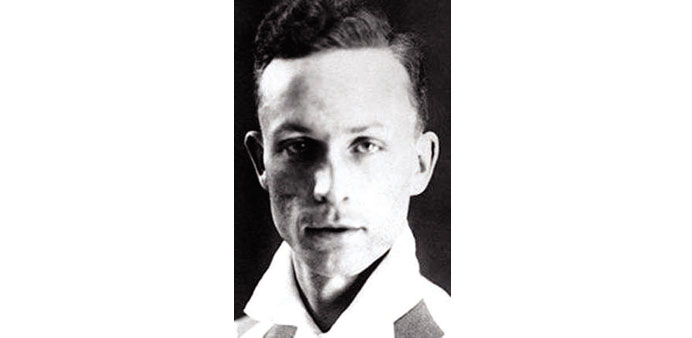Algeria coach Vahid Halilhodzic interrupted his football career to return to Bosnia and take up arms in the Balkans conflagration in the early 1990s. AFP Sport looks at five other footballers who bore arms either before or after a World Cup finals:
Alex Villaplane
A fall from grace so shocking it is barely credible. Captained France at the inaugural 1930 World Cup in Uruguay—an idea brought to fruition by Great War veteran Jules Rimet in order to help world peace. Fourteen years later he was executed for collaborating with the Nazis, having been part of the notorious French Gestapo, otherwise known as the Bonny and Lafont gang. He personally oversaw the execution of 52 French citizens in June 1944 in the Dordogne town of Mussidan. At his trial later in 1944 after the Liberation of Paris, the prosecutor graphically described Villaplane’s role: “a witness told us how he saw with his own eyes these mercenaries take jewels from the still-twitching and bloodstained bodies of their victims. Villaplane was in the midst of all this, calm and smiling. Cheerful, almost invigorated.”
Fritz Walter
Captained West Germany—the ‘Heroes of Berne’—aged 37 to their first World Cup trophy in 1954, defeating the ‘Mighty Magyars’ of Hungary. Ironically, if it hadn’t been for his Hungarian guards at the end of World War II, Walter would most probably have been either still rotting in a Soviet gulag or even dead. It had only been his joining in a game of football with the Hungarian guards at the prisoner of war camp—he and 40,000 others had been taken prisoner on the Eastern Front—where they stopped off on their way to their eventual destination of Siberia that saved his life. During a break in the game between guards and prisoners, he was unnerved when one of the guards said he knew him. “Hungary v Germany in Budapest, 1942. You won 5-3,” added the guard. Walter was not ordered to join the rest of his comrades on the death march the following day and was eventually repatriated.
Stan Mortensen
The only player to score a hat-trick in an FA Cup final in the 20th century, in Blackpool’s 4-3 win over Bolton in 1953, and yet it remains known as the ‘Matthews Final’ after his teammate Stanley. He was also to score one of only two goals England managed at the 1950 World Cup in the 2-0 win over Chile. It was amazing that he even got to play football at such a high level as during World War II, and then a wireless operator and air gunner, he suffered serious head injuries when his Wellington Bomber crashed—killing the pilot and bomb aimer while the navigator lost a leg. His injuries were judged so severe that he was told he was no longer fit for operational service. A humble and modest man he never openly resented the fame Matthews acquired compared to him. When he died just short of his 70th birthday someone acidly remarked ‘They’ll probably call it Matthews’s funeral’. A statue of him now stands outside the Blackpool ground.
Joe Maca
Belgian-born footballer who emigrated to the United States after World War II, where he fought in the Belgian Army until they were crushed by the Nazis. He then engage in resistance activity which resulted in his bravery being rewarded with a medal. He played just three times for the USA, all of them in the famous 1950 World Cup finals campaign which included the 1-0 win over England. One of the increasingly frustrated English players taunted him: “how many national teams can you play for” because Maca had yet to acquire American citizenship. Maca scored against Chile but their humbling 5-2 defeat sent them home at the end of the group stage.
Wilf Mannion
Known as ‘Winky’ because of his acute shyness, he played 26 times for his country and scored in the 2-0 win over Chile at the 1950 World Cup finals. Had an eventful time during World War II, serving with the Green Howards, being rescued from Dunkirk and later serving in Italy. Assigned a role as the company runner, he was beside his company commander the England cricketer Hedley Verity when the latter was seriously wounded in Sicily. While Verity was captured and ultimately died of his wounds, Mannion was posted as missing but eventually regained his own lines. He became an effective striker for England scoring 11 times in 26 appearances.

